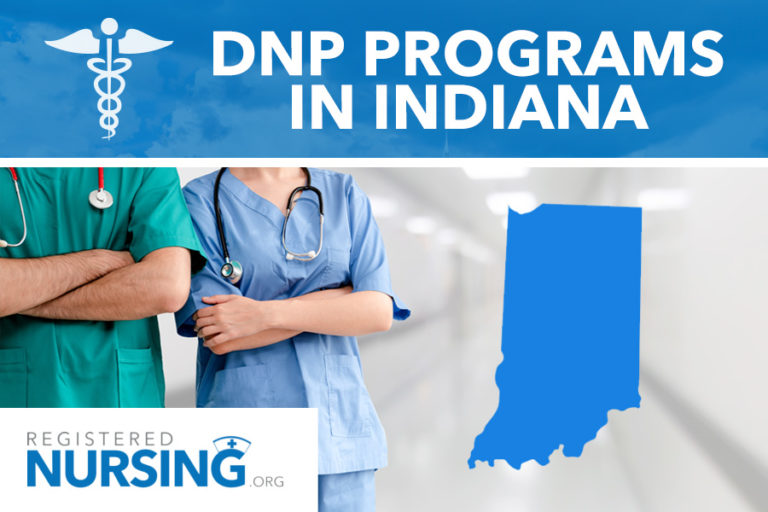The doctor of nursing practice (DNP) is the terminal, or highest, degree someone can obtain in the nursing field. It is considered superior to the master's of science in nursing (MSN), which is the minimum degree requirement for advanced-practice nurses (APRNs). Nurses who have earned DNP degrees are able to work as certified nurse anesthetists (CRNAs), nurse practitioners, and as nurse midwives. Additionally, those who have obtained their DNPs can work in executive leadership roles like nursing or hospital administration, and as directors.
Universities with DNP programs exist throughout the entire country. The number of credits needed will differ from place to place; however, BSN to DNP students are expected to complete 65 to 95 unit hours in addition to a number of supervised clinical clerkship hours. Typically, students enrolled in full-time BSN to DNP programs will take three to four years to finish. Most MSN to DNP programs will require students to complete at minimum 39 unit hours, and will take students taking a full load about two years to complete
Core concepts taught to students during DNP programs will likely include:
- Advanced assessment
- Population-specific studies
- Advanced physiology and pathophysiology
- Advanced Pharmacology
- Leadership Skills & Behavior
- Healthcare policy
- Quantitative Research Methods
- Evidence-based practice
- Healthcare policy
Choosing a Doctor of Nursing Practice Program
The state of Indiana has a total nine different DNP programs. Before applying, there are a few things to consider.
What to Consider When Choosing a DNP Program
- Program Cost— Tuition prices for DNP programs in the state of Indiana vary widely. Tuition prices will significantly depend on whether you're an out-of-state or in-state student, and whether your planning to attend a public or private university. If you're an in-state or out-of-state student attending a public university, expect to pay around $400-450 per unit hour and $500-600 per unit hour, respectively. Conversely, if you're an in-state or out-of-state student attending a private university plan on paying $800-900 per unit hour and $1,800-2,200, respectively.
- Online/Campus options— Six of Indiana's nine DNP programs are delivered either completely online or in a hybrid online-campus format.
- Accreditation— DNP programs in the state of Indiana are accredited by the Commission on Nursing Education (CCNE).
- Residencies— Fellowships or residencies are a stage in an advanced practice nurse's clinical education they provide patient care under the supervision of either a physician or another nurse practitioner while being paid a salary. The following are residency/fellowship opportunities offered within the state of Indiana.
- Health Linc— Family Nurse Practitioner Residency Program
Admission & State Licensing or Certification Requirements
Admission
Requirements for admission into DNP programs in Indiana deviate from program to program. The following are the more common requirements for entry into most of the programs in the state:
- Complete an application
- Provide curriculum vitae (CV) or resume
- Possess a BSN or MSN from a nationally accredited program
- Have maintained a 3.0 grade point average, based on a 4.0 system in either undergraduate or graduate degree programs
- Posses a valid, unrestricted RN license
- For students with foreign transcripts, an evaluation is required with GPA equivalency and TOEFL score.
- Documentation of clinical hours performed in MSN program
- GRE scores required for applicants with an undergraduate GPA under 3.0, recommended for all other applicant.
- Personal statement of goals for doctoral education and subsequent career plans
- Complete an in-person interview with university program faculty
- Satisfactory criminal background check
Certification
In the state of Indiana, after a nursing student finishes their DNP degree they are able to sit for the state certification exam. Once this is exam is passed, given everything else is in order, individuals can then become certified in the following advanced nursing specialties:
- Psych/Mental Health Nurse Practitioner
- Family Nurse Practitioner
- Neonatal Nurse Practitioner
- Adult-Gerontology Acute Care Nurse Practitioner
- Nurse Anesthesia
- Pediatric Primary Care Nurse Practitioner
Licensing
Indiana requirements for licensure as an APRN include:
- Completing an application
- Background checks
- Provide transcripts from all educational institutions
- Submit verification of specialty certification
- Complete fingerprinting
Indiana BSN to DNP Program Options
There are three universities that have BSN to DNP programs in the state of Indiana. Valparaiso University, Saint Mary's College and Purdue University all offer BSN to DNP pathways.
Related Education Paths
- Indiana Nurse Practitioner Programs
- Indiana Nurse Practitioner Programs Online
- Indiana FNP Programs
- Indiana CRNA Programs
- BSN to DNP
- RN to NP

